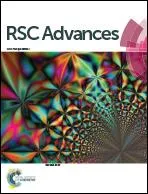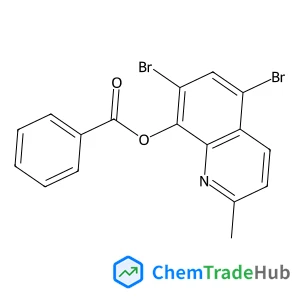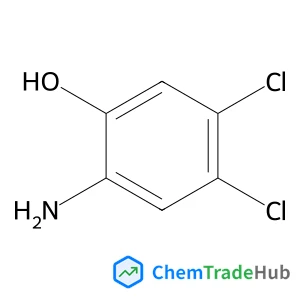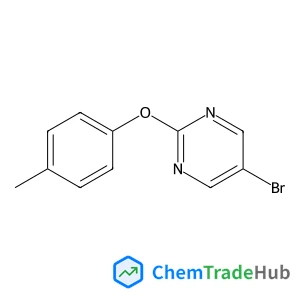Amphiphilic nanogel of enzymatically synthesized glycogen as an artificial molecular chaperone for effective protein refolding
文献情報
Shigeo Takeda, Haruko Takahashi, Yoshihiro Sasaki
Enzymatically synthesized glycogen (ESG) bearing hydrophobic groups were prepared to construct a new artificial molecular chaperone system. The radius of the amphiphilic ESG nanogel was approximately 15 nm. The nanogels prevented irreversible aggregation of carbonic anhydrase. Cyclodextrin induced the release of carbonic anhydrase in its active form via a one-step mechanism without dissociation of the nanogels.
関連文献
IF 6.843
Recent developments in carbon nitride based films for photoelectrochemical water splittingIF 6.367
Milk exosomes with enhanced mucus penetrability for oral delivery of siRNAIF 6.843
An environmentally friendly natural polymer as a universal interfacial modifier for fullerene and non-fullerene polymer solar cellsIF 6.367
Pulsed laser rusted stainless steel: a robust electrode material applied for energy storage and generation applicationsIF 6.367
Visible light-driven cross-coupling reactions of alkyl halides with phenylacetylene derivatives for C(sp3)–C(sp) bond formation catalyzed by a B12 complexIF 6.222
Performance of electrode-supported silica membrane separators in lithium-ion batteriesIF 6.367
Efficient one-pot synthesis of alkyl levulinate from xylose with an integrated dehydration/transfer-hydrogenation/alcoholysis processIF 6.367
Tessellation strategy for the interfacial synthesis of an anthracene-based 2D polymer via [4+4]-photocycloadditionIF 6.222
Synthesis and hydrogen evolving catalysis of a panchromatic photochemical molecular deviceIF 6.367
掲載誌
RSC Advances

Chemistry fascinates us. This discipline is integral to life and impacts so many aspects of our world. The scope for RSC Advances is wide-ranging because we want to capture any research that can offer crucial insights and advance chemistry. RSC Advances papers should provide an insight that advances the chemistry field. Papers that contain little or no chemistry and are not considered to be of interest or relevance to the chemistry community are not within the scope of the journal. The criteria for publication are that the work must be high quality, well conducted and advance the development of the field. Articles submitted to the journal are evaluated by our international team of associate editors and reviewers for the overall quality and accuracy of the science presented. Download our full list of subject categories to see the range of topics we publish in RSC Advances. Please ensure you have considered the following points before submitting your manuscript. Does the work present an advance over the existing literature? Please supply a covering letter with your submission to demonstrate how the work is advancing the field over the existing literature Have you provided sufficient evidence/data to support your conclusions? Have you provided adequate characterisation data for your materials/compounds? (Please check the supporting information section to ensure that the necessary requirements have been met and copies of relevant spectra have been provided where necessary) Are the results discussed in the context of the literature? Are the references relevant and do they appropriately reflect the existing literature?
おすすめサプライヤー
 山東ケミコ新材料有限公司
山東ケミコ新材料有限公司 淮北新兴实业有限责任公司 → 煙台しんせい stoshiryōかん limitless 会社
淮北新兴实业有限责任公司 → 煙台しんせい stoshiryōかん limitless 会社 M—Tech Fr ö schl 、 Maschinen—und Anlagenbau GmbH
M—Tech Fr ö schl 、 Maschinen—und Anlagenbau GmbH インターナショナルラボサプライヤーズ · デ · メキシコ S. A. C. V. の
インターナショナルラボサプライヤーズ · デ · メキシコ S. A. C. V. の 海宁市亚泰制药机械有限公司
海宁市亚泰制药机械有限公司 青岛セナ新材料有限公司
青岛セナ新材料有限公司 tesa Werk Offenburg有限公司
tesa Werk Offenburg有限公司 SITA Messtechnik GmbH
SITA Messtechnik GmbH Allweiler 事業部門 Exzenterschneckenpumpen
Allweiler 事業部門 Exzenterschneckenpumpen Denios AG
Denios AG











![4079-26-9 - 6,11-Dihydro[1]benzothiopyrano[4,3-b]indole 4079-26-9 - 6,11-Dihydro[1]benzothiopyrano[4,3-b]indole](/structs/407/4079-26-9-7725.webp)
![56843-76-6 - 2-phenylthieno[2,3-d]pyrimidin-4-ol 56843-76-6 - 2-phenylthieno[2,3-d]pyrimidin-4-ol](/structs/568/56843-76-6-0035.webp)

